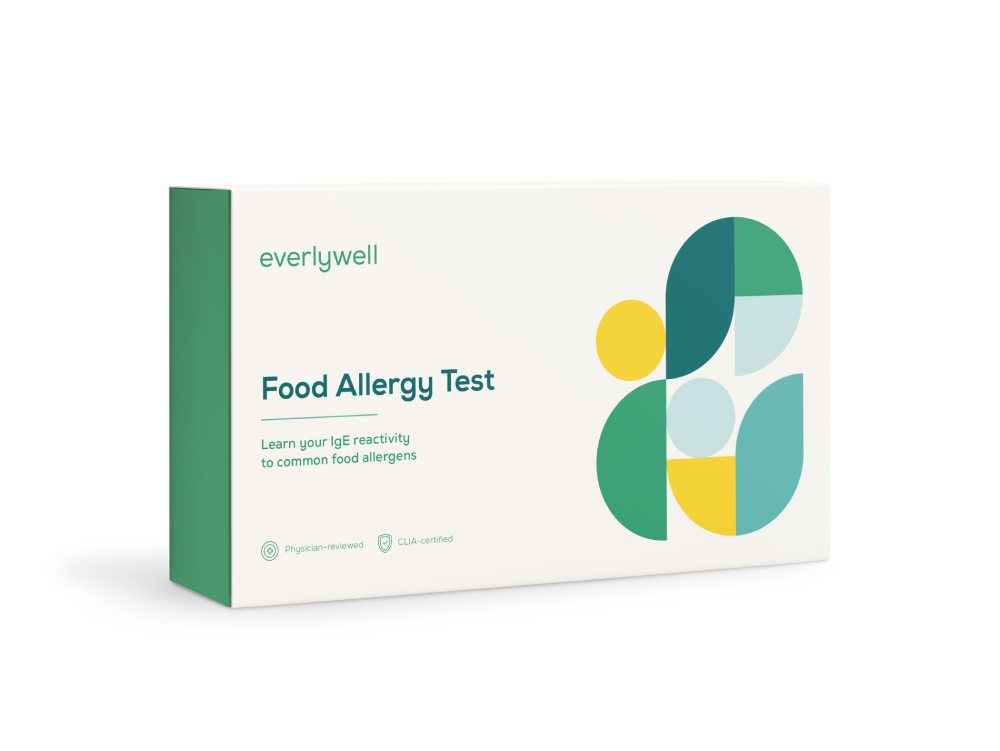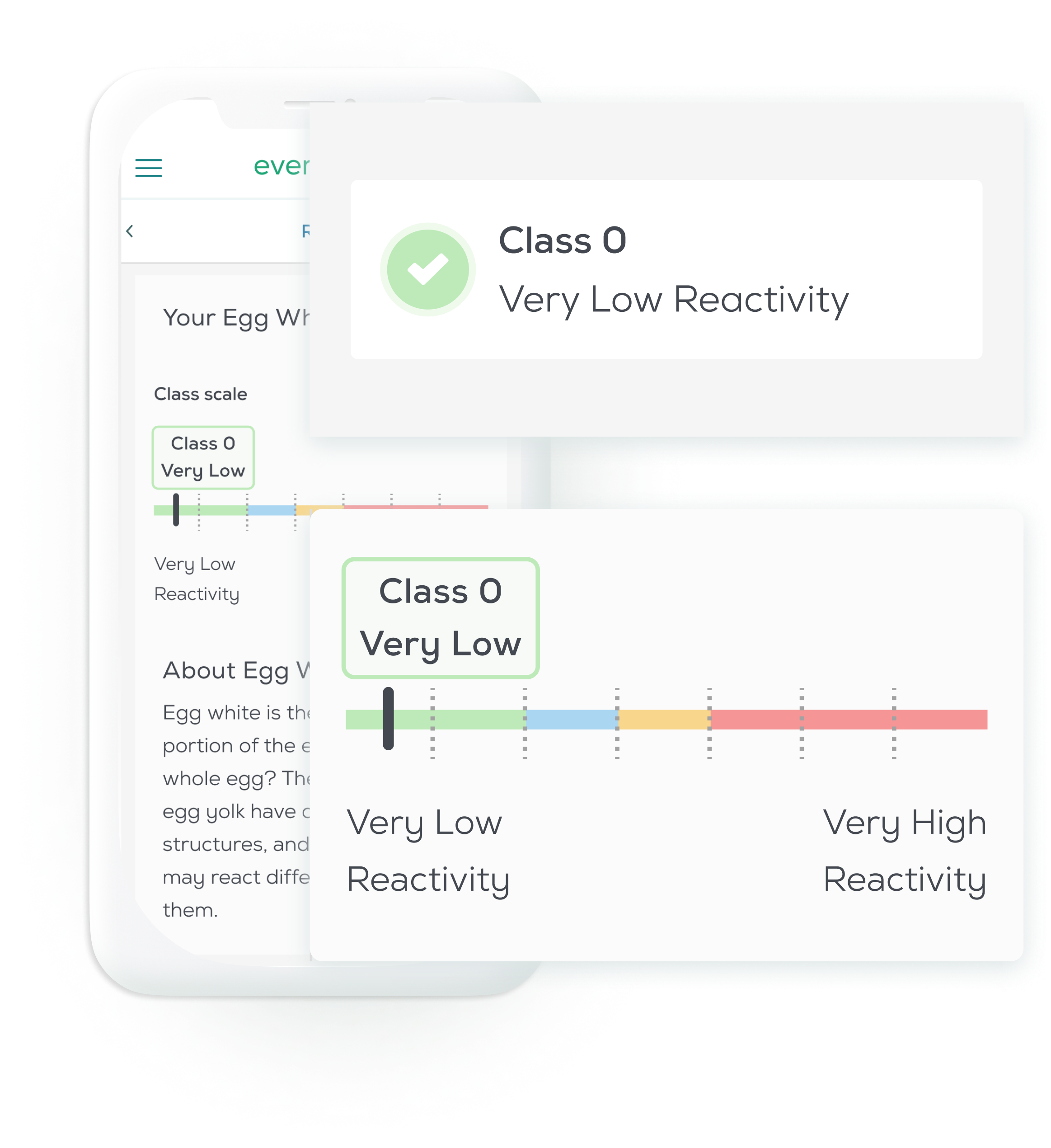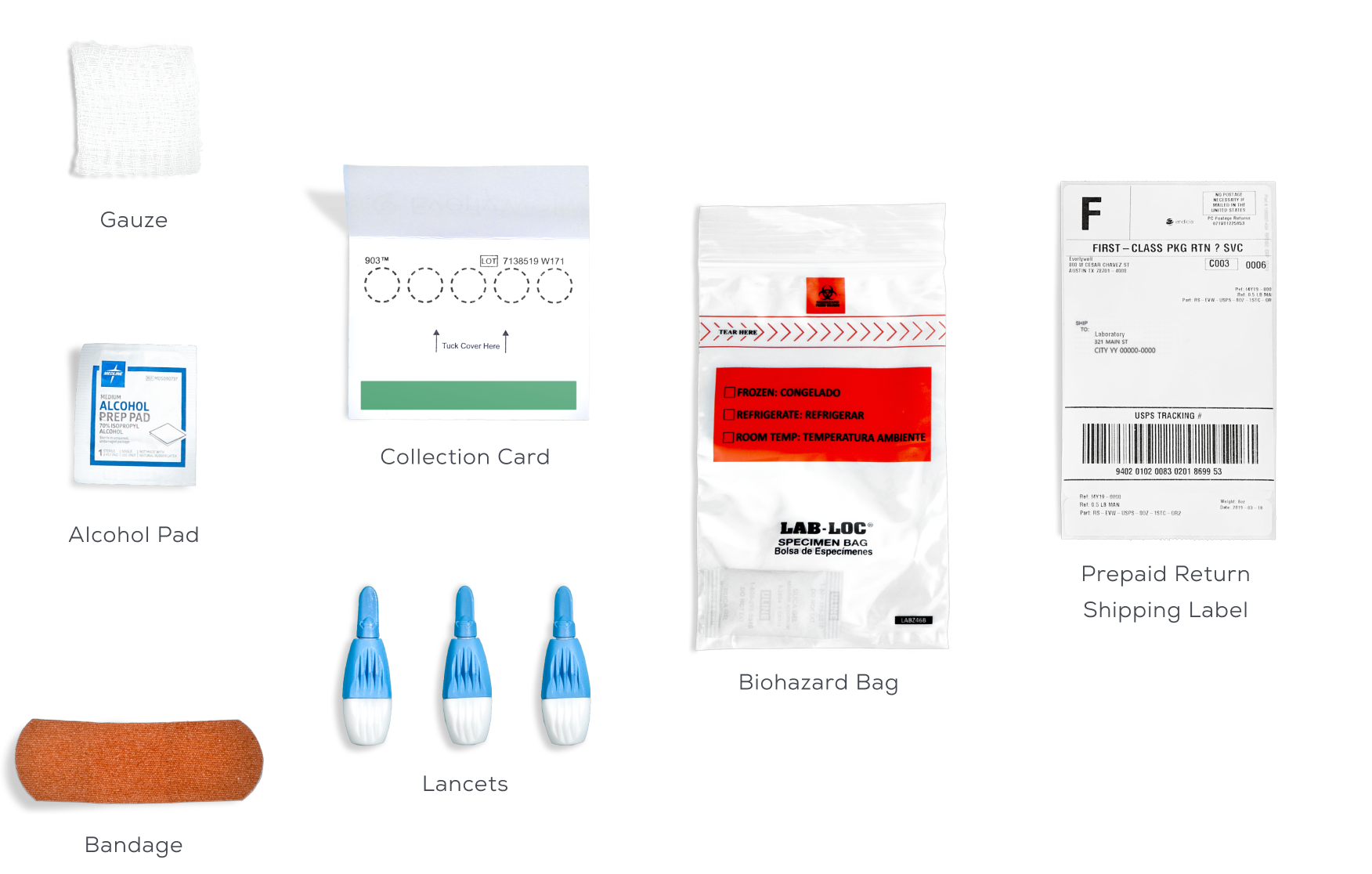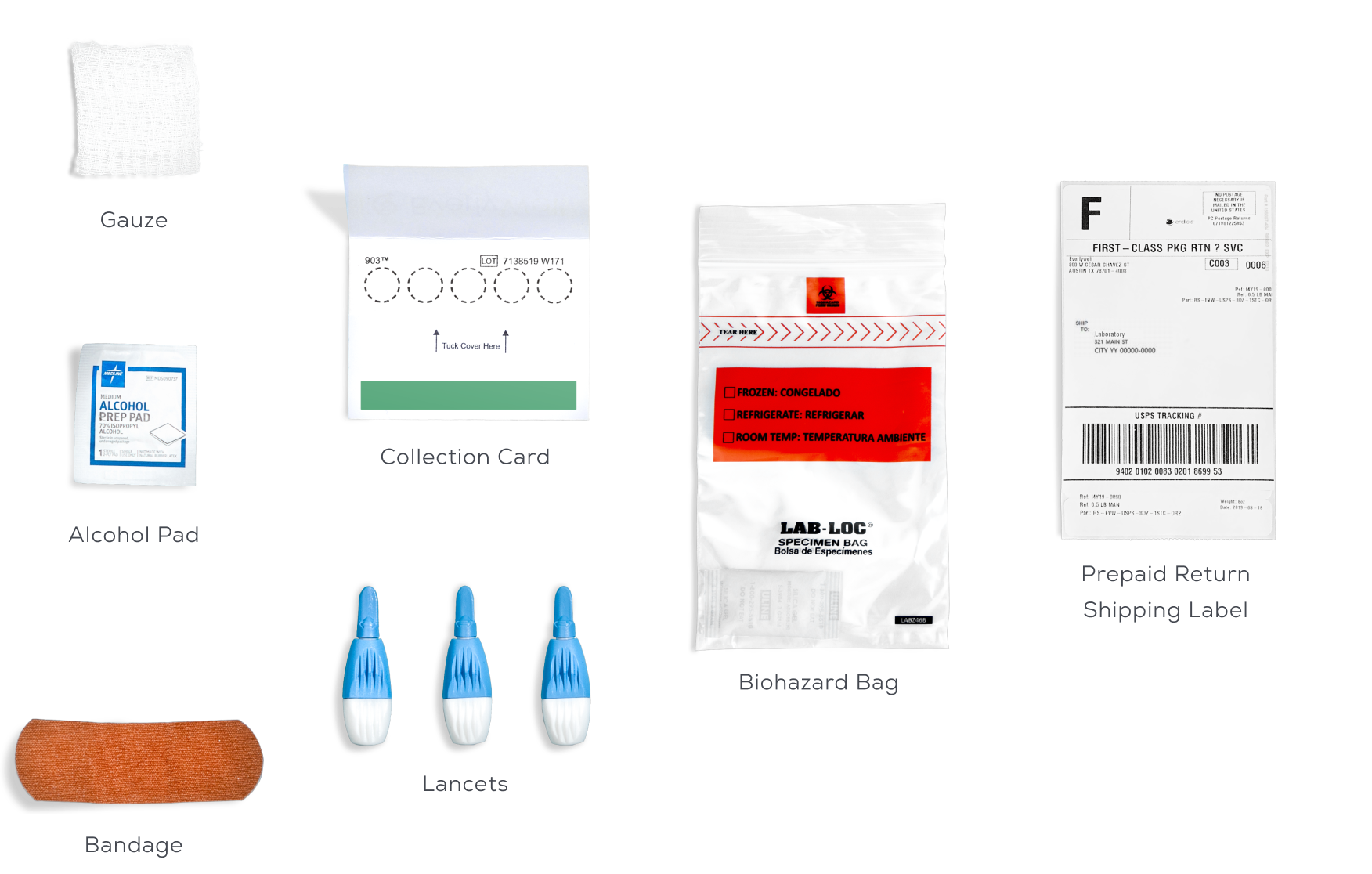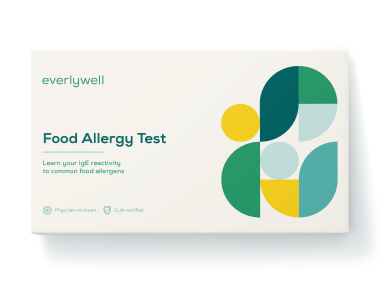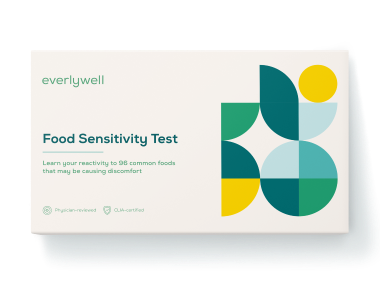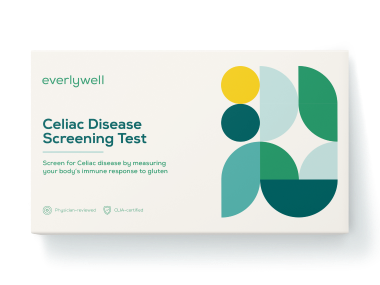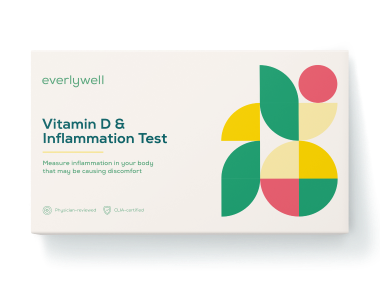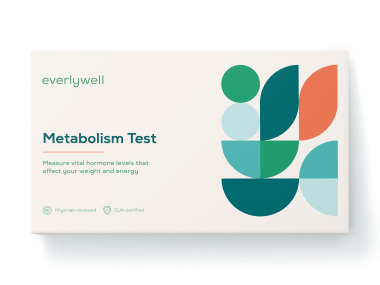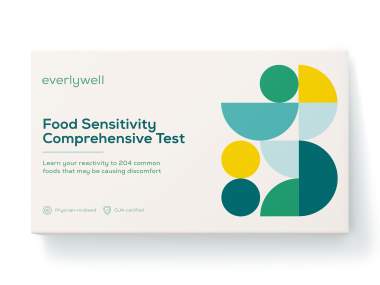Food Allergy Test
/each
Our at-home lab test measures your body’s immunoglobulin E (IgE) reactivity to some of the most common food allergens. If your results show elevated reactivity, someone will get in touch to help with next steps.
IgE reactivity to 9 foods
Finger prick sample
Food Allergy Test
Free shipping
FSA / HSA accepted
Free shipping
FSA / HSA accepted
Better health starts here
How it all works
1
Register your test
Once your test arrives, head to everlywell.com or open your Everlywell app to register. Just Scan the QR code on the box to seamlessly plug in your test ID.

2
Test from the comfort of home
When you're ready, collect your sample and mail it in (following the directions in your kit) using the prepaid shipping label.

3
Get answers in days
Your physician-reviewed results will be ready in your account in a few days.

4
Healthy doesn’t happen alone
We'll offer lifestyle insights and guidance tailored to your results that you can use to make healthier choices.


100% digital
Your results
Easy to access, even easier to understand
Care you can count on
Backed by science, reviewed by doctors

CLIA-certified laboratories
Each lab we work with is CLIA-certified (Clinical Laboratory Improvement Amendments). This means they must meet high standards to obtain both state and federal certifications and submit themselves to regular inspections.

Physician-reviewed results
All tests are reviewed by an independent board-certified physician within your state.

Your privacy matters
Everlywell is HIPAA-compliant. This means we never sell your health data and we always store it securely—in fact, we use state-of-the-art, bank-grade encryption.
Reviews
3.1 out of 5
5 star
41%
4 star
5%
3 star
16%
2 star
3%
1 star
35%
Learn More
Understand the differences between food sensitivity, food allergy, and celiac disease testing
- This test
![]()
Food Allergy Test
Measures: IgE reactivity to common food allergens
Intended use: To identify antibody responses to specific foods that might be connected to a food allergy
Potential symptoms: Food Allergies are a potentially life threatening condition with symptoms that can develop quickly such as abdominal pain, nausea, diarrhea, constipation, hives or skin rash, runny nose, sneezing, congestion, or tingling or itching.
Next steps: Provides results to share with your healthcare provider
149 dollars and no cents ![]()
Food Sensitivity Test
4.7 · 6936 Reviews
Measures: Current levels of IgG antibodies for a variety of foods
Intended use: To identify foods in your current diet that might be connected to food sensitivity symptoms
Potential symptoms: Food sensitivities are a non-life-threatening condition with delayed symptoms such as abdominal pain, bloating, headache, or indigestion.
Next steps: Helps guide a two-part elimination diet
199 dollars and no cents![]()
Celiac Disease Screening Test
Measures: Presence or absence of antibodies that can indicate celiac disease
Intended use: To identify if you have an immune response to gluten, that might be connected to celiac disease
Potential symptoms: Celiac disease is an autoimmune condition with chronic symptoms such as abdominal pain, diarrhea, constipation, bloating, or unexpected weight loss
Next steps: Provides results to share with your healthcare provider
119 dollars and no cents
Related tests
Customers also bought
FAQs
You have questions, we have answers
Fast telehealth visits
Our expert team of clinicians will help you start your journey to better health
Schedule visit